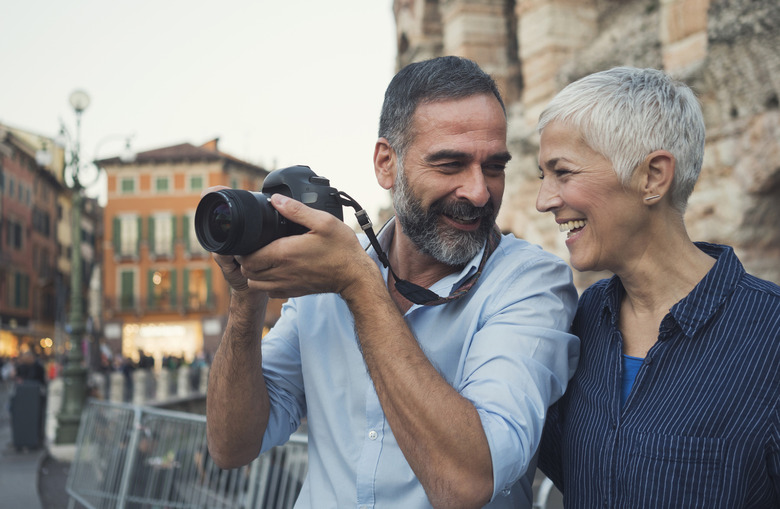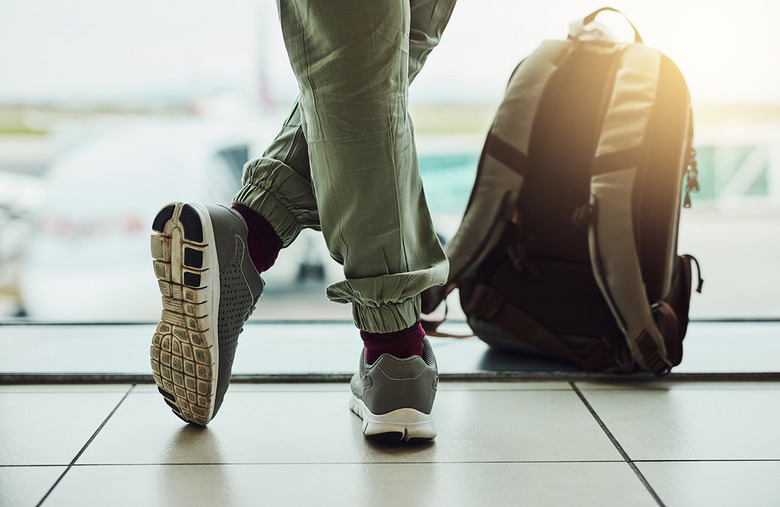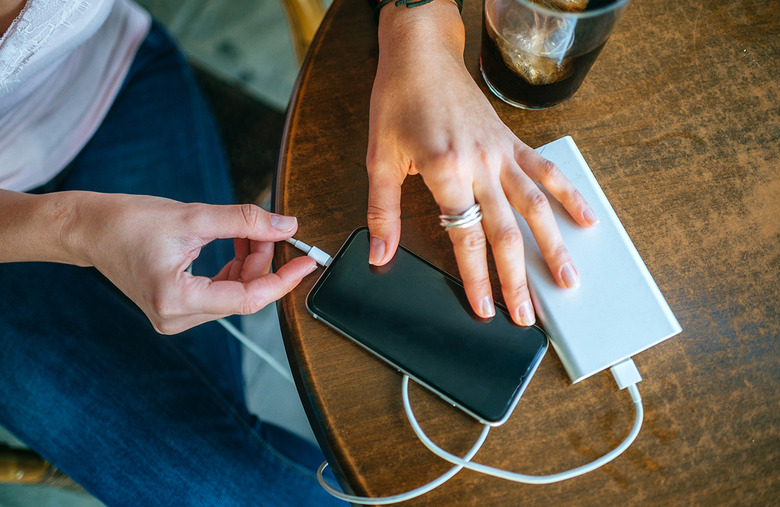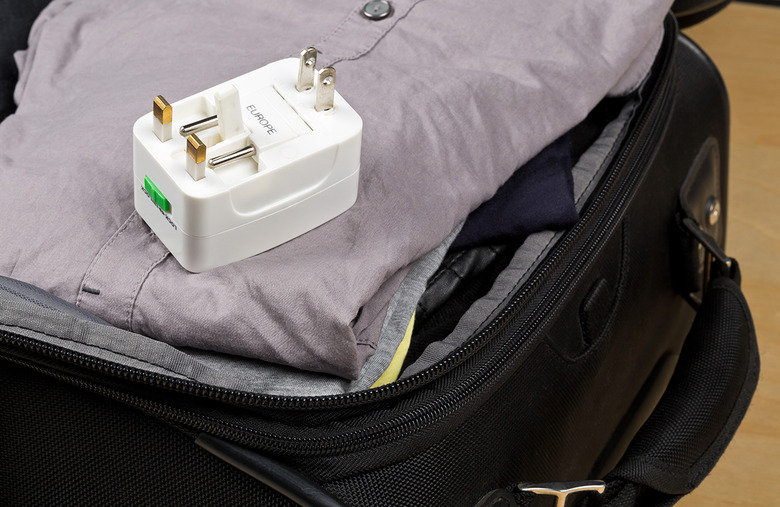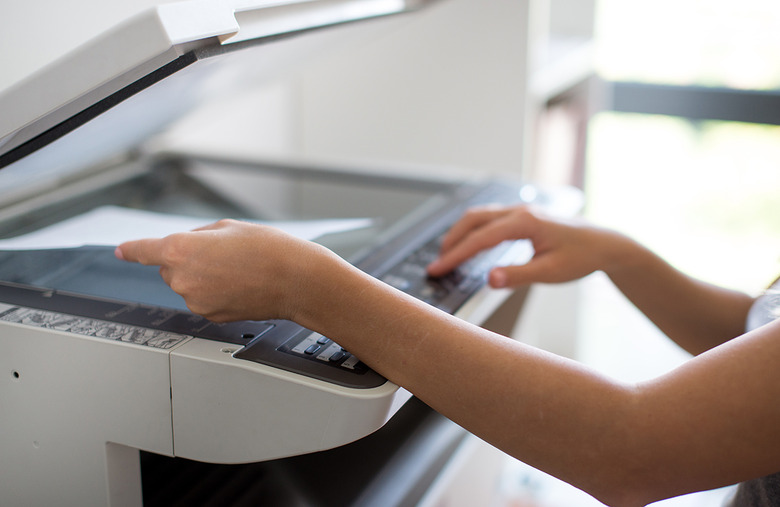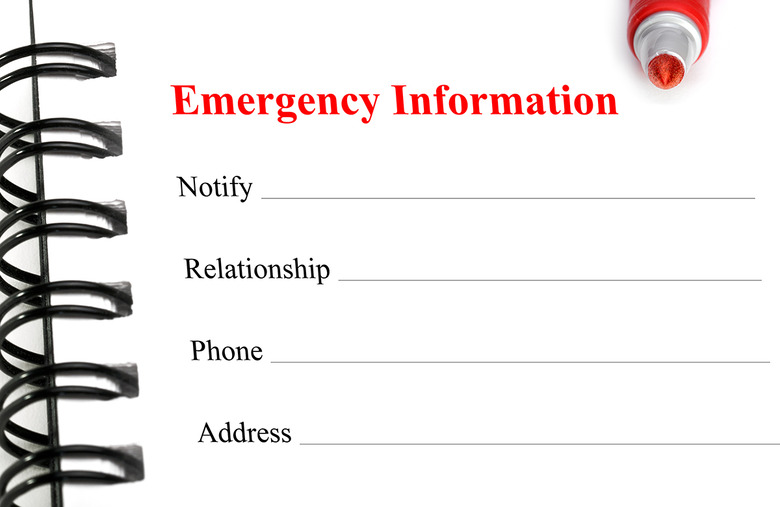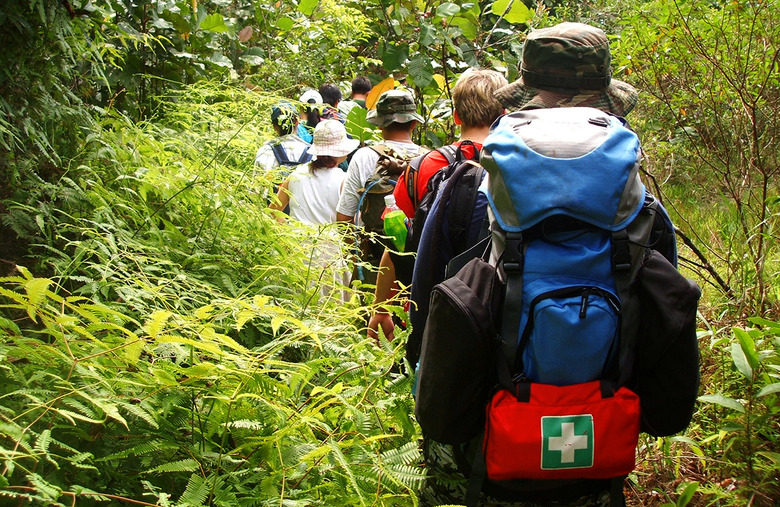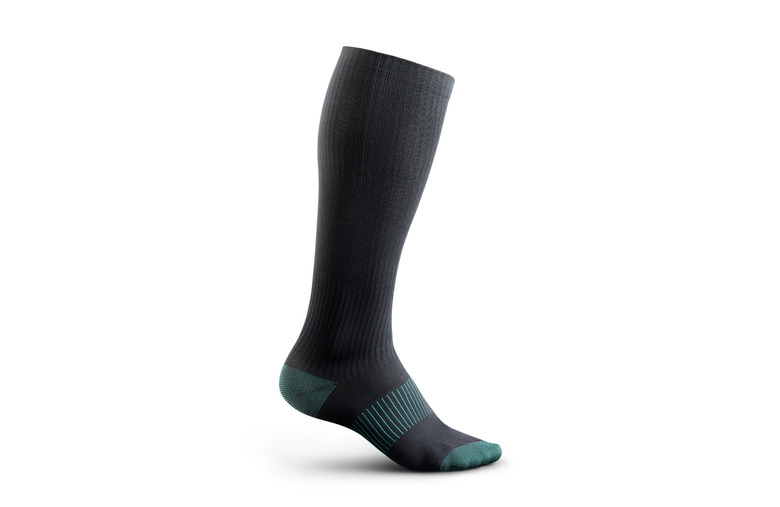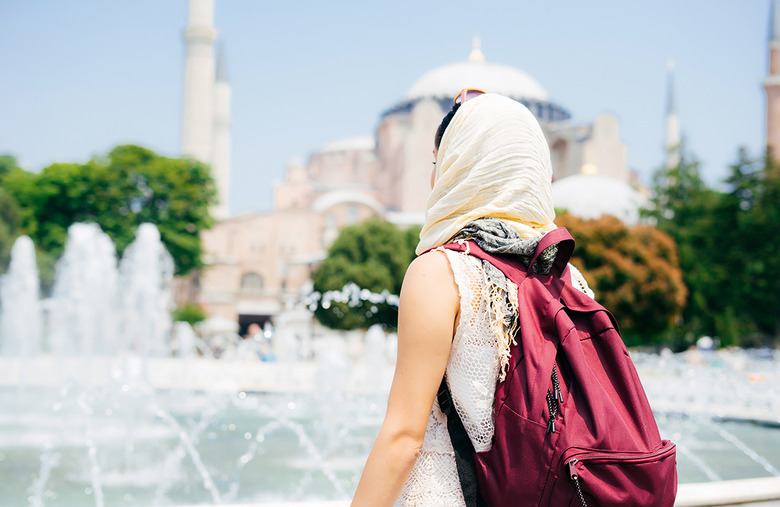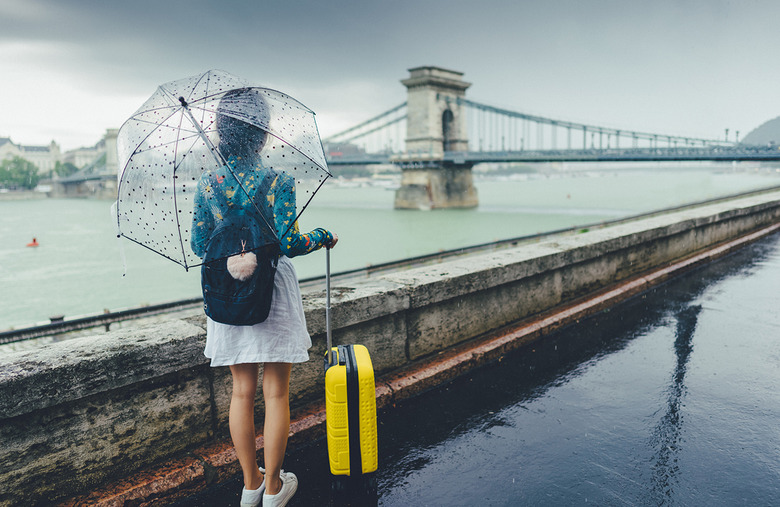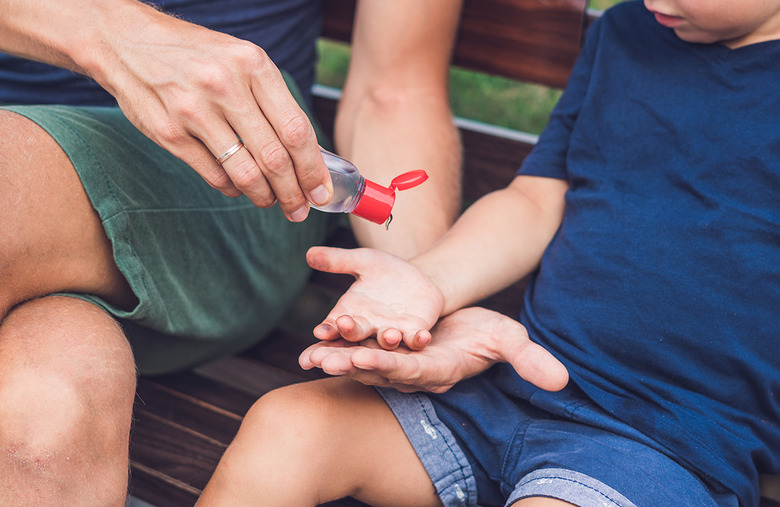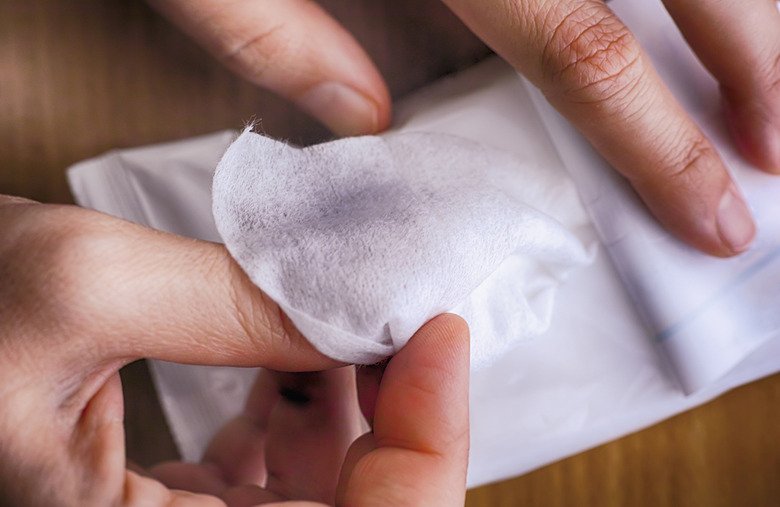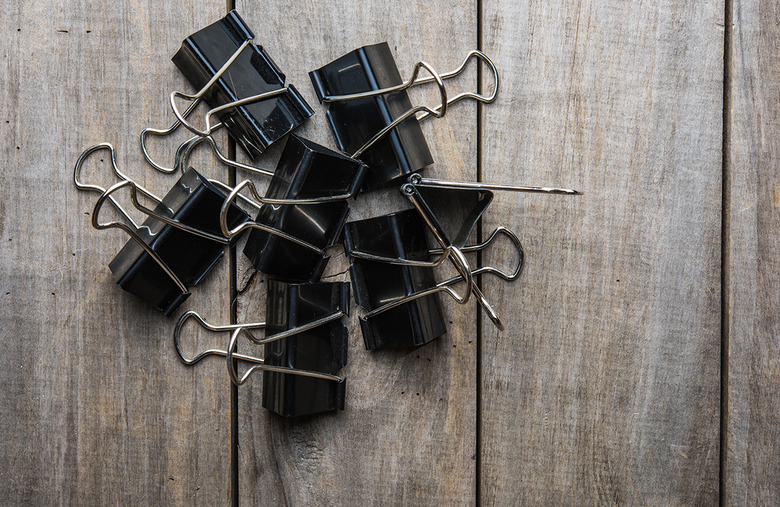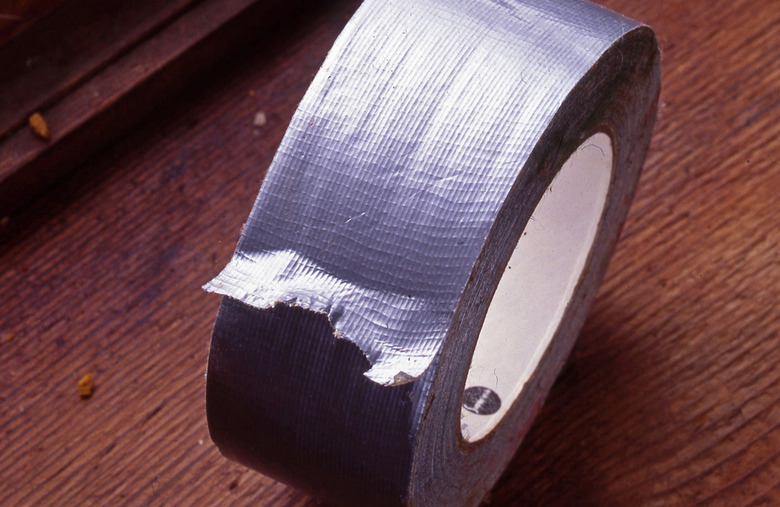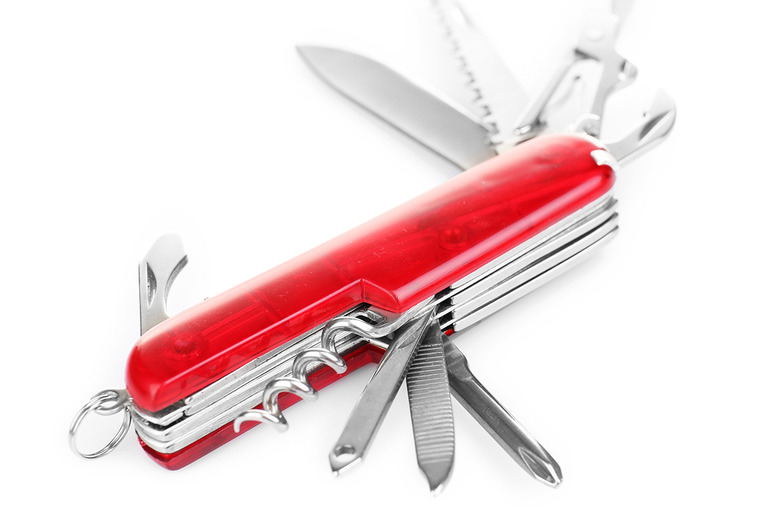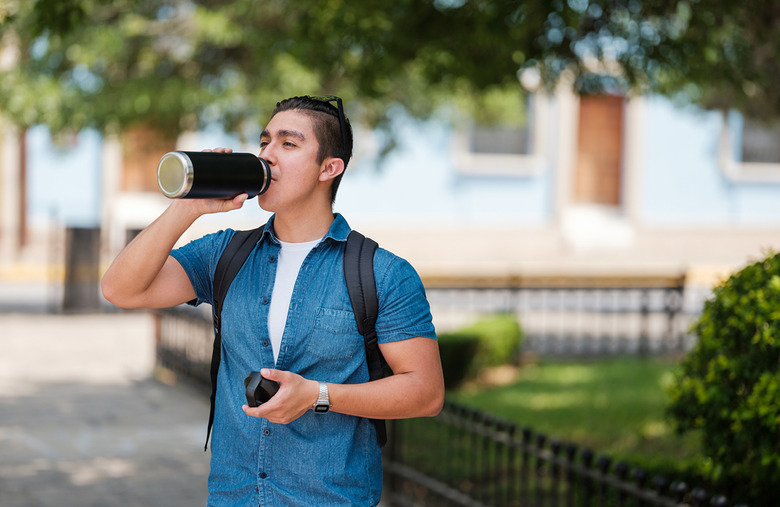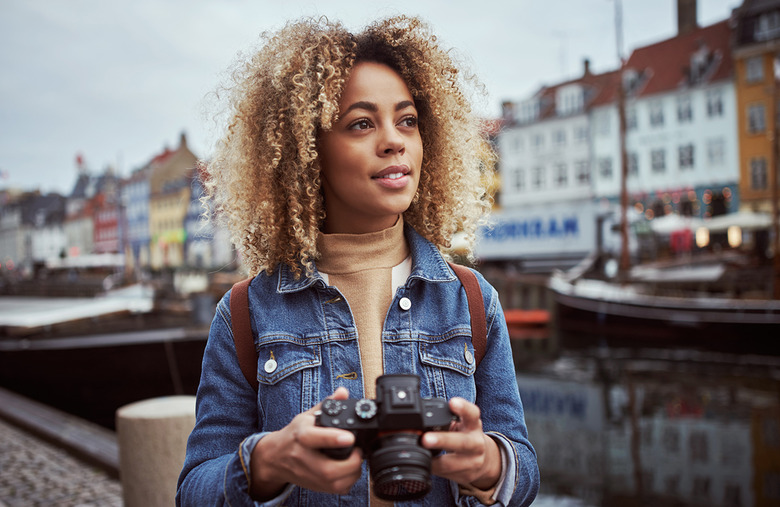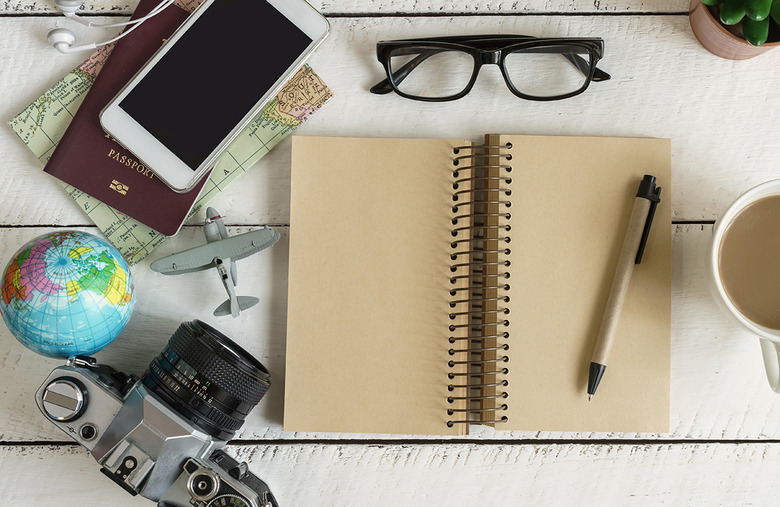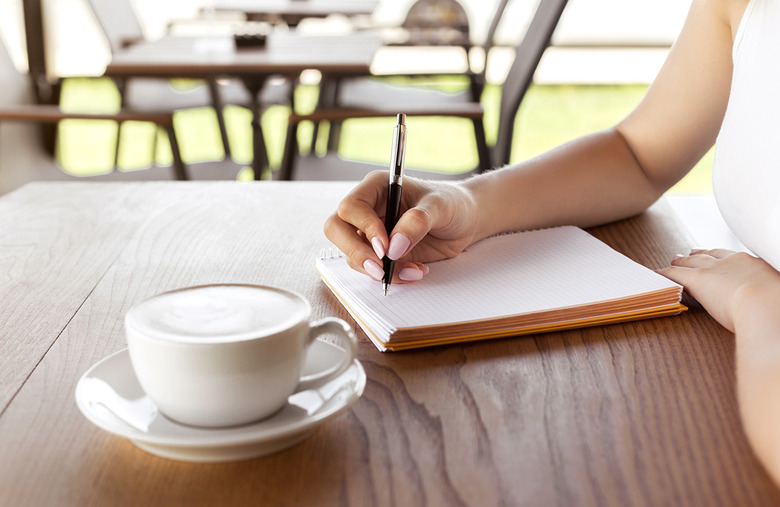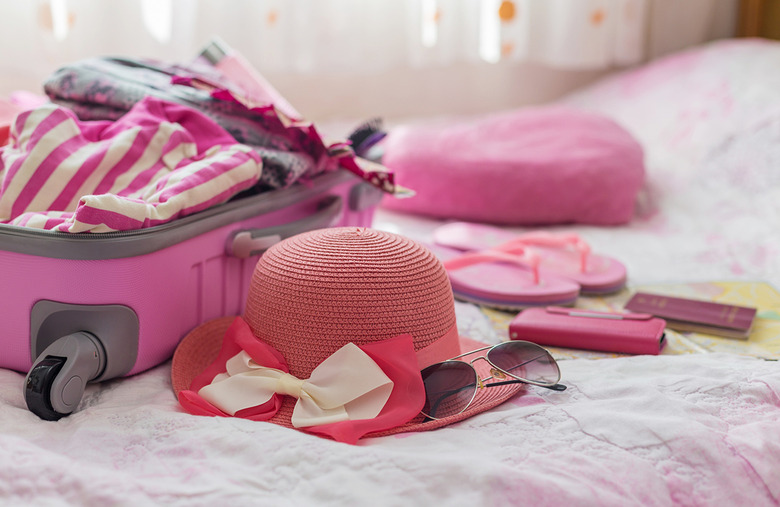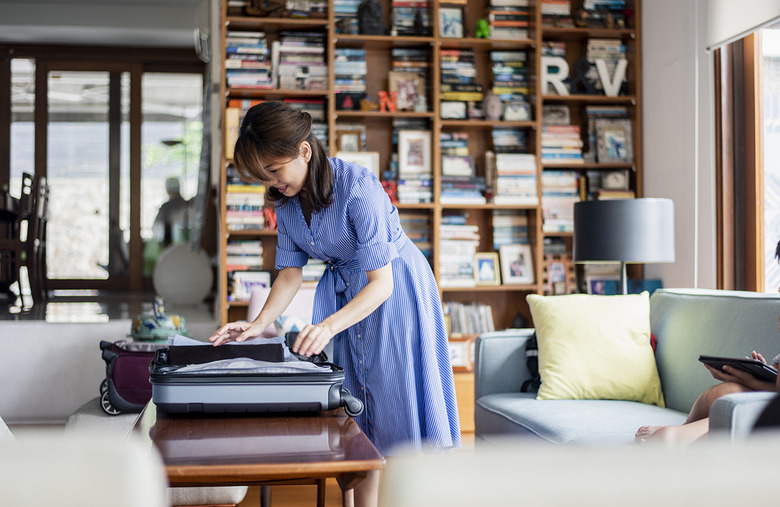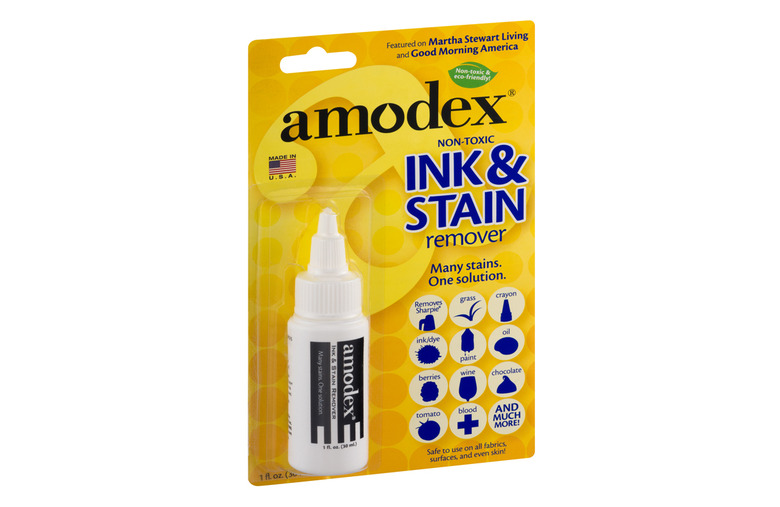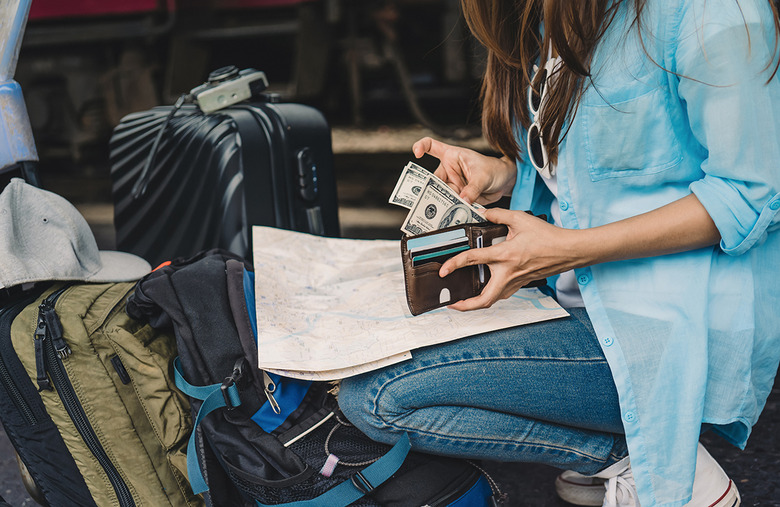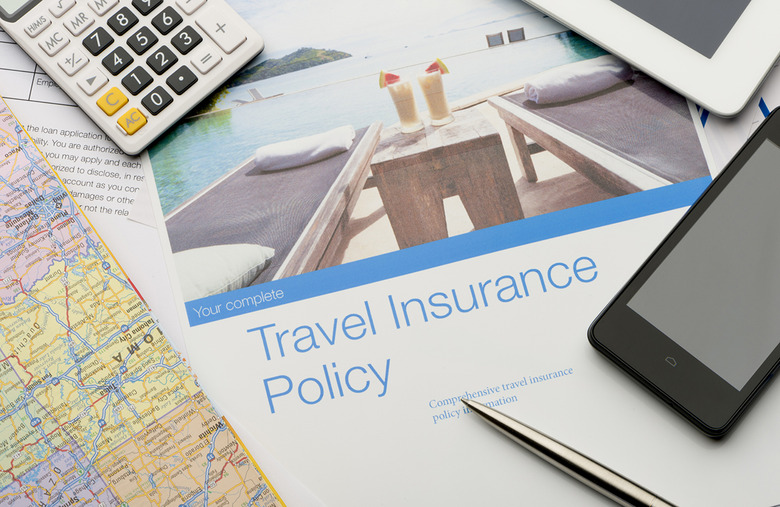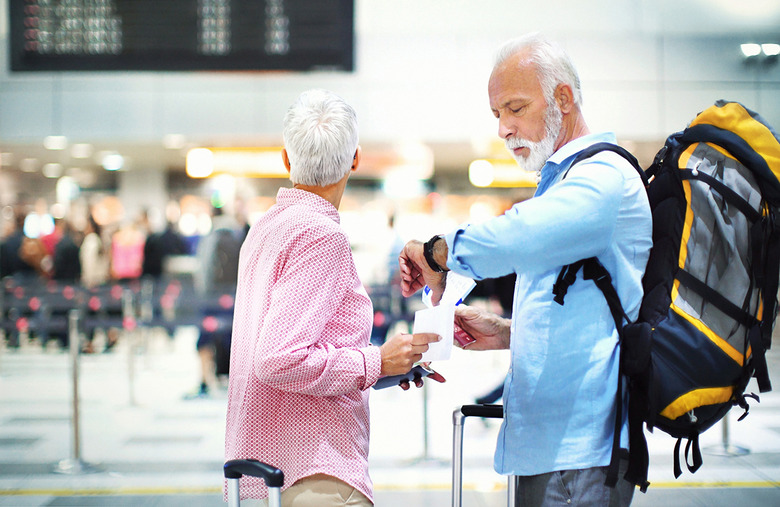25 Things You Should Never Vacation Without
After booking your flights and making hotel reservations, the next most important part of planning a vacation is the packing list. What you need to bring can vary depending on your destination and the length of your stay, but there are some things that you'll need for any kind of trip. Whether you're preparing for a simple weekend getaway, checking off a bucket list adventure abroad or planning out your dream vacation, you will almost certainly need these 25 things for a smooth and successful trip.
Comfortable shoes
You won't be able to relax properly on your vacation if you're not comfortable, and since you'll likely be doing a lot more walking than usual, you should have a pair of shoes up to the job. Avoid trying out a brand new pair on your trip as shoes that haven't been broken in yet can cause you discomfort and sometimes even blisters. Pack comfortable walking shoes, even if you'll just be on the beach in flip-flops. Good sneakers are one of the things that can help you get through a long flight.
Portable phone battery
It's a good idea to keep a portable battery bank on hand any time you're out all day, even if it's in your own hometown, so that you can charge up your phone on the go. If you're in another country without local cell service, it's an especially good idea as searching for usable Wi-Fi networks can quickly drain your battery. You don't want to get lost in an unfamiliar place where you might not know the local language.
Travel power adapter/converter
When traveling abroad, you should be mindful of the fact that other countries' power outlets and voltages vary. For example, the voltage in much of Europe and Asia is twice that of the voltage in the United States. If you don't use the proper adapter, you risk blowing out your electronics and ruining them. Outlet size and shape also varies, so buying a combined universal adapter and converter will ensure that you can use your electronics anywhere you go.
Copies of documents
In addition to making sure that your passport is up to date and that you have all the requisite visas needed for your trip, the U.S. State Department recommends that you make two copies of any and all official documents and identification. Keep one copy in a secure place to take with you and give the other copy to a trusted friend or family member at home. The copies will come in handy in case anything happens to the originals, such as damage, loss or theft; you'll still be able to get by and make your way back home.
Emergency contact information
In case of any sort of serious emergency, you should have an emergency contact card full of necessary information. That way if you are incapacitated, someone can contact a loved one. On a card or small piece of paper that you can easily fit in your wallet, write information such as your full name, any medical issues you may have or medicine you are on, your blood type and the name and number of one or two emergency contacts. Medical insurance information should also be included, as should information for your country's local consulate.
First-aid kit
No matter how careful you are, accidents do happen, so it's important to be prepared. Buy yourself a ready-made first-aid kit or pack a small bag with antiseptic wipes, bandages, gauze, cotton balls, painkillers, any necessary medications and whatever else you may need in case you have a headache, get hurt or end up with food poisoning. Keeping this kit in your carry-on is a good idea as safety during your flight is also important, as is staying prepared in case you get separated from your luggage.
Compression socks
Whether you're taking a long train ride, flight or road trip, sitting for extended periods of time can be very uncomfortable, painful and even dangerous because doing so decreases your blood circulation. This can cause swelling or blood clots, known as deep vein thrombosis when it happens in deeper veins such as those in your legs. Wearing compression socks can help increase your circulation, as they slightly squeeze your legs. Another way to help avoid swelling and clots is to do foot and leg exercises from your seat or get up to walk up and down the aisles — just make sure you don't do it barefoot.
Daypack
Pack a small backpack to use as a daypack to store and organize everything you'll need for the day as you go out sight-seeing and exploring your destination. Having a daypack leaves your hands free and also allows you to relax and not worry about losing anything in your hands.
Umbrella
Even if the forecast is foretelling nothing but sunny days, the weather can be unpredictable, especially if you're traveling during the shoulder season. Pack an umbrella in case of any inclement weather so that you can keep dry if it starts to pour.
Hand sanitizer
You don't want to be stuck in a situation where you need to be able to sanitize your hands but have no access to water or a bathroom. Keeping hand sanitizer on you will ensure you can fight off any germs you come in contact with, especially on the plane.
Wet wipes
Airplanes can be super gross, but you'd also be amazed at how many germs there are in your hotel room. Keep some wet wipes on hand in order to wipe down any surfaces in your room if need be. They're also good to have if you're unable to wash your hands right away or don't have access to a shower but feel a little grimy.
Binder clips
Binder clips are handy and versatile, and they don't take up much space. You can use them to close bags, organize electronic cords, hold together torn bags or clothes and keep together any papers that you need for traveling.
Duct tape
Duct tape is one of the most useful tools you can have in your arsenal, whether at home or on the go. Not only is it a great temporary fix to broken luggage or torn clothes, but it can also work really well as a lint remover, a way to waterproof your shoes and so much more.
Pocket knife
A pocket knife can seriously come in handy in a lot of different scenarios. If you get a camper pocket knife, such as the Swiss Army knife, you'll have multiple tools in one so that you can cut things up, open cans, uncork bottles, file your nails and even defend yourself. You should, however, be mindful of the fact that pocket knives are forbidden in the cabin of a plane and therefore should be checked in with your luggage. Also be sure to leave your pocket knife in your hotel room if you're going to be going into government buildings or places with high security.
Sunscreen
A lot of people forget sunscreen, especially when they're not traveling in the summer. It's important to remember, however, that risk of sun damage, sun poisoning and skin cancer is always present, and sunscreen is a necessary method of making sure you take care of your health.
Water bottle
No matter where you are, you should always make sure you're drinking enough water every day. Keep an empty and reusable water bottle (both for getting through airport security and being more eco-friendly) on you so that you can stay hydrated throughout your journey, which is especially important when you're out in the sun or getting a lot of exercise.
Camera
If you can afford it, packing an actual camera, such as a digital point-and-shoot, in addition to having your phone is even better. While phone cameras are great and convenient, a digital camera can provide better quality images so that you can make the best of the photogenic spots you come across.
Notebook
A lot of planning and preparation goes into travel, even while you're on your trip, so you'll end up needing to write stuff down. It's a good idea to have a notebook on hand to keep all your thoughts, lists and ideas in one place. You can also use the notebook as a place to take notes on your travel experience, keeping a record that you can look back on as well as a means of practicing gratitude.
Pens
Not only will you need a pen to write in your notebook, but also the convenience of having one will make your life a lot easier when it comes to writing down directions, numbers or names. Flight attendants don't always have enough writing utensils on hand, so it's also good to have a pen on hand when it comes time to filling out customs forms.
Extra underwear
You may not think you need it, but having a new pair of underwear to change into after a long day of activities can go a long way in helping you feel refreshed. Plus, accidents do happen and you would rather have too many pairs of underwear than not enough.
Laundry bag
Housekeeping doesn't always have laundry service and, often when they do, it can be expensive. As a result, you'll have to pack your dirty clothes to take back home, and a laundry bag can help you stay organized as well as keep your dirty clothes separate from fresh, clean ones.
Stain remover
With limited access to laundry and a limited amount of clothing you can bring, having a stain remover on hand can really save the day in case you have an unfortunate spill or get any dirt, food or other dark substance on your clothes. A stain removal pen is perfectly compact so that you can keep it in your bag while traveling, and most provide a quick and simple way to make your clothes like new.
Cash
As a general rule no matter where you are, it's a good idea to always have some cash on hand. You never know when you'll need it in a bind, such as for a cab ride, a tip or at a cash-only restaurant. If you're traveling in a foreign country, make sure to exchange your currency if necessary.
Travel insurance
Even the best laid plans can go awry, so buying travel insurance is a good way to keep yourself covered, especially if you're planning a more extended or expensive trip. In cases of long delays, flight cancellations, bad weather and other mishaps, travel insurance can reimburse you for costs incurred changing your flight or cancelling your trip altogether.
Watch
Just in case your smartphone or laptop does lose charge, or you don't have access to them or Wi-Fi, you want to still be able to tell the time. Keep a watch to wear wherever you go so that you can keep the time. You can even reset it once you're on the plane to help with jet lag.
